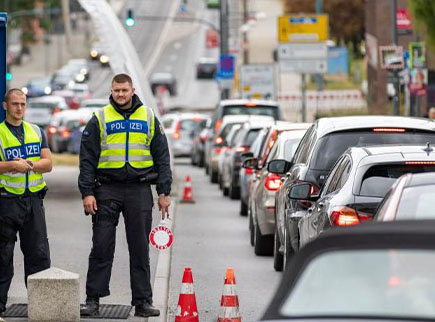Germany has introduced stringent border controls across all land borders, restricting movement within the Schengen Zone and drawing criticism from neighboring countries. The new measures, effective for six months, grant Berlin the authority to reject individuals at all land borders.
Germany’s Interior Minister Nancy Faeser justified the move as essential for internal security, citing threats from Islamist terrorism and cross-border crime. However, the decision has tested EU unity and prompted backlash from countries including Poland, Greece, and Austria.

Key Points:
1. Germany’s border controls now extend to France, Luxembourg, Netherlands, Belgium, and Denmark.
2. The move aims to curb irregular migration and address security concerns.
3. Poland’s Prime Minister Donald Tusk deemed the controls “unacceptable.”
4. Greece and Austria refused to accept migrants rejected by Germany.
5. Germany’s Council for Migration warned the plan may violate EU law.
Context:
Germany’s shift on migration policy follows:
1. A surge in arrivals from the Middle East and Ukraine.
2. Terror attacks motivated by Islamic extremism.
3. Growing pressure from the far-right Alternative for Germany (AfD) party.

Reactions:
1. EU neighbors express concerns about border control implications.
2. Human rights groups criticize the move as populist and potentially unlawful.
3. Germany’s government seeks to balance security concerns with EU obligations.
The development highlights the ongoing tensions within the EU regarding migration policy and national security.

